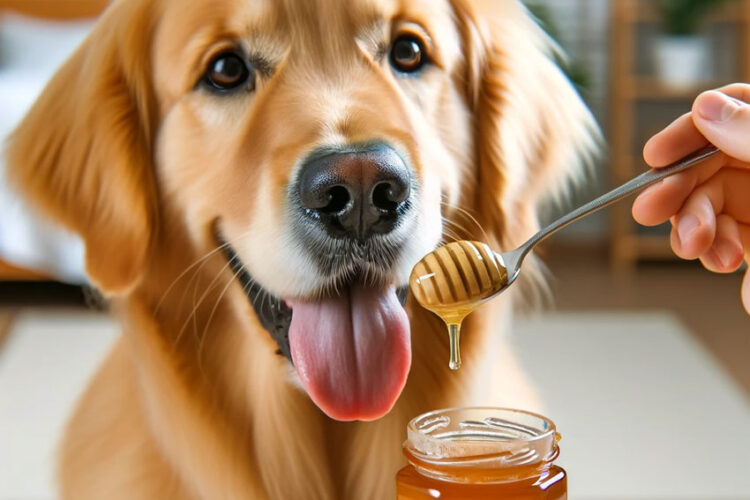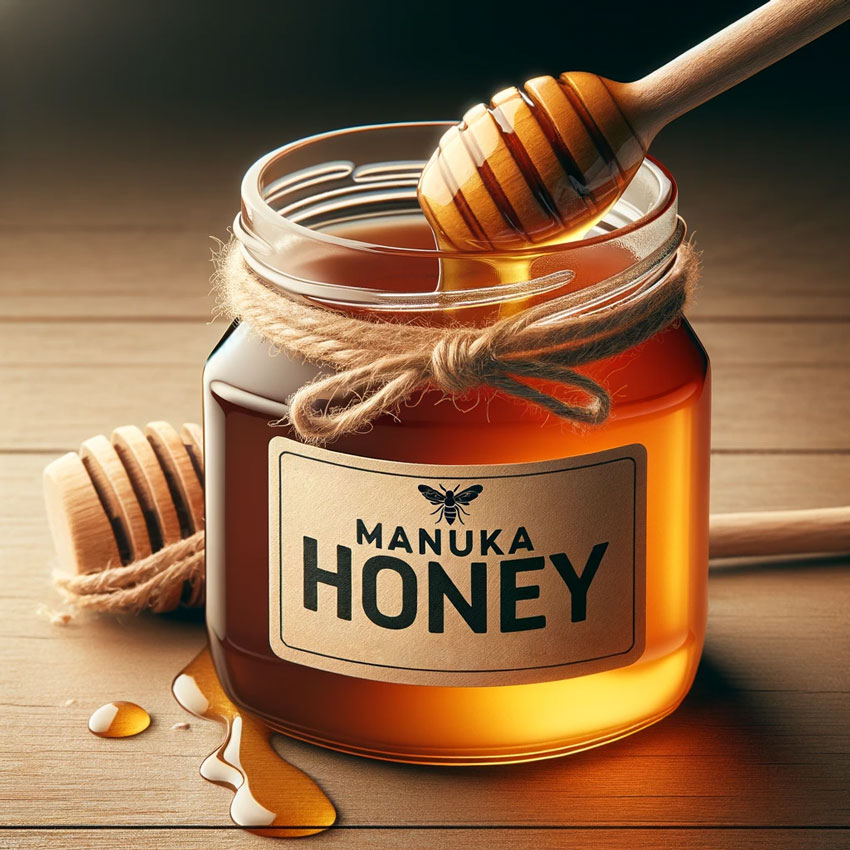Manuka honey has been used for centuries as a natural remedy for various health conditions. It is known for its antibacterial and anti-inflammatory properties, making it a popular choice for treating wounds, sore throats, and other ailments. But can dogs have Manuka honey?
Key Takeaways
- Manuka honey has antibacterial and anti-inflammatory properties and can provide potential health benefits for dogs.
- It is important to consult with a veterinarian and choose high-quality, pure Manuka honey before giving it to your dog.
- When used appropriately, Manuka honey can be a natural and effective way to promote your dog’s health and well-being.
Understanding Manuka Honey
Manuka honey is a type of honey that is produced by bees that feed on the nectar of the Manuka tree. This tree is native to New Zealand and Australia, and its flowers produce a unique type of nectar that gives Manuka honey its distinctive flavor and color.
Manuka honey is known for its antibacterial properties, which are due to the presence of a compound called methylglyoxal (MGO). The higher the MGO content, the more potent the antibacterial properties of the honey.
Manuka honey is often used in wound care and can be applied topically to help promote healing. It is also believed to have anti-inflammatory properties, which can help to reduce pain and swelling.
Can Dogs Have Manuka Honey?
Manuka honey is a type of honey produced in New Zealand from the nectar of the manuka tree. It is known for its antibacterial and anti-inflammatory properties, making it a popular natural remedy for humans. But can dogs have manuka honey?
According to the American Kennel Club, it is safe for dogs to eat honey in small quantities. Honey contains natural sugars and small amounts of vitamins and minerals that can be beneficial for dogs. However, it is important to note that honey should not be given to dogs in excess as it can cause weight gain and other health issues.
When it comes to manuka honey specifically, there is limited research on its effects on dogs. While some pet owners claim that it has helped their dogs with various health issues such as allergies and digestive problems, there is no scientific evidence to support these claims.
It is important to consult with a veterinarian before giving manuka honey or any other natural remedy to your dog. Some dogs may have allergies or sensitivities to certain types of honey, and excessive consumption can lead to health problems. As with any new food or supplement, it is best to introduce it slowly and monitor your dog’s reaction.
Potential Benefits for Dogs
Manuka honey has been gaining popularity as a natural remedy for dogs. It has been shown to have potential benefits for dogs in various ways. Here are some of the benefits:
- Wound Healing: Manuka honey can be used to treat minor wounds and cuts in dogs. Its antibacterial properties can help prevent infections and promote faster healing.
- Digestive Health: Manuka honey can help improve digestive health in dogs. It contains prebiotics that can promote the growth of good bacteria in the gut, which can help improve digestion and prevent gastrointestinal problems.
- Immune System Support: Manuka honey contains antioxidants that can help boost the immune system in dogs. This can help prevent infections and diseases.
- Skin Health: Manuka honey can help improve skin health in dogs. It can be used to treat skin conditions such as dermatitis, eczema, and hot spots. Its antibacterial and anti-inflammatory properties can help reduce itching and inflammation.
Precautions and Risks
Allergic Reactions
While Manuka honey is generally safe for dogs, it can cause allergic reactions in some canines. Symptoms of an allergic reaction may include vomiting, diarrhea, hives, and difficulty breathing. If your dog exhibits any of these symptoms after consuming Manuka honey, seek veterinary care immediately.
Sugar Content
Manuka honey is high in sugar and may not be suitable for dogs with diabetes or obesity. It is important to monitor the amount of honey your dog consumes to prevent any negative health effects from excessive sugar intake.
Botulism Risk
Manuka honey may contain botulism spores, which can be harmful to dogs with compromised immune systems. It is recommended to avoid giving honey to puppies under the age of one and dogs with weakened immune systems. Additionally, it is essential to ensure that the honey you give your dog is free of botulism spores. Consult with your veterinarian before giving Manuka honey to your dog to determine if it is safe and appropriate for your pet’s health needs.




